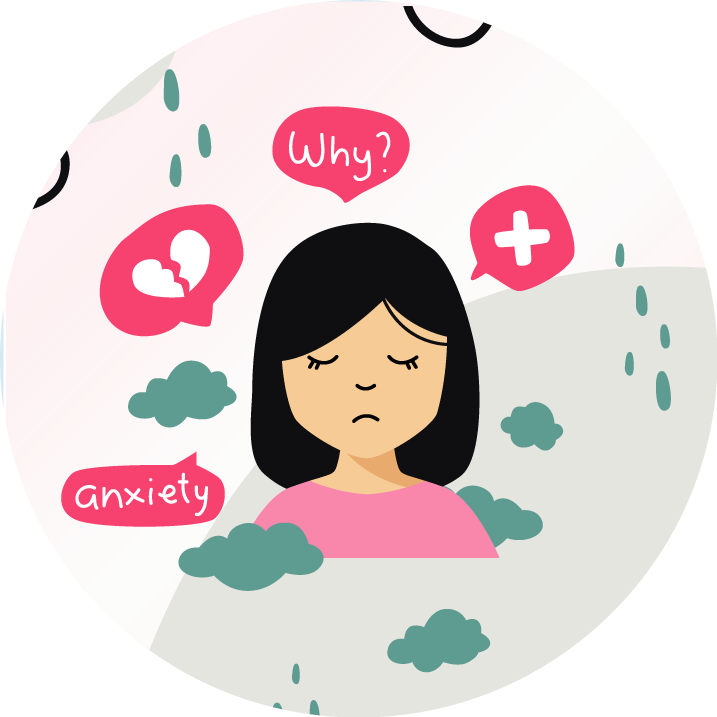How to Deal With Mania and Manic Episodes

How to Deal With Mania and Manic Episodes
June 23 2025 TalktoAngel 0 comments 463 Views
Mania, often associated with Bipolar Disorder, can be an overwhelming and disruptive experience, both for the person going through it and for those around them. Manic episodes are characterized by elevated mood, high energy levels, impulsivity, and sometimes risky behaviours that can lead to significant distress or harm if not managed effectively.
Understanding mania, recognizing the warning signs, and learning strategies for management can help individuals lead more balanced lives and maintain emotional stability. This blog explores how to deal with mania and manic episodes, offering practical tips, insights into treatment options, and the importance of seeking support.
What Is Mania?
An unusually high degree of arousal, mood, and energy is a hallmark of mania. It’s a core feature of Bipolar I Disorder, where individuals experience extreme highs (mania) and lows (depression).
During a manic episode, a person may:
- Feel euphoric, overly happy, or "on top of the world"
- Talk rapidly and jump between topics
- Sleep very little yet feel rested
- Display racing thoughts and poor concentration
- Engage in risky behaviour (e.g., spending sprees, impulsive sexual behaviour, substance use)
- Have inflated self-esteem or delusions of grandeur
In some cases, mania may also involve psychosis, including hallucinations or delusions. It’s important to note that not all elevated moods are manic — the behaviour must impair functioning or require hospitalisation to be considered a manic episode (American Psychiatric Association, 2013).
Recognising the Early Warning Signs
Early detection is key in preventing a full-blown manic episode. Signs that a manic phase may be starting include:
- Increased talkativeness
- Decreased need for sleep
- Heightened irritability or agitation
- Overconfidence or grandiosity
- Sudden interest in risky ventures or spending
- Over-involvement in activities without rest
Keeping a mood journal, using mood-tracking apps, or encouraging open communication with loved ones can help identify these signs early.
What Triggers Manic Episodes?
Manic episodes are often triggered by a combination of biological, psychological, and environmental factors. Common triggers include:
- Sleep deprivation
- Substance abuse
- High-stress situations
- Disruption in routine or medication
- Seasonal changes (some experience mania more in the spring/summer)
Understanding personal triggers helps in crafting a relapse prevention plan with the support of a mental health professional.
Strategies to Manage Mania
1. Stick to a Treatment Plan
Medication is a cornerstone of managing mania. Mood stabilisers such as lithium, valproate, and antipsychotic medications are often prescribed to reduce manic symptoms (Geddes & Miklowitz, 2013). Medication adherence is critical — stopping suddenly can result in relapse.
If you’re struggling with side effects or medication concerns, talk to your psychiatrist instead of discontinuing on your own.
2. Establish a Daily Routine
Regular routines around sleep, meals, and activities can help regulate mood. Irregular schedules, particularly disrupted sleep, are strongly linked to triggering manic episodes.
- Avoid stimulants like caffeine close to bedtime.
- Before going to bed, incorporate relaxing activities like journaling or mild yoga.
3. Limit Stimulants and Triggers
People prone to mania should be cautious about alcohol, caffeine, and recreational drugs, as these can exacerbate symptoms.
If stress, or social media tend to overstimulate you during vulnerable periods, it’s wise to limit exposure or take breaks.
4. Create a Crisis Plan
Having a plan in place can help when warning signs of mania appear. This may include:
- Recognising personal warning signs
- Listing emergency contacts
- Designating a trusted person to hold onto credit cards or car keys
- Setting boundaries with others about what to do if symptoms escalate
Platforms offer online therapy and psychiatric consultations, helping individuals and families develop personalised crisis management strategies.
5. Involve Trusted Loved Ones
Mania can impair judgment, so it's important to involve supportive family members or friends. Teach them the signs of mania and empower them to intervene gently if needed.
Encourage loved ones to:
- Attend therapy sessions with you (if comfortable)
- Monitor changes in sleep or energy levels
- Offer reminders about medication or appointments
6. Therapy for Long-Term Stability
While medication treats symptoms, therapy helps manage thought patterns and behaviour. Cognitive Behavioural Therapy (CBT) and Interpersonal Therapy (IPT) have proven effective in stabilising mood and preventing relapse (Miklowitz et al., 2007).
Therapists on TalktoAngel and similar online platforms provide safe, structured environments to work through triggers, manage stress, and build coping skills.
When to Seek Immediate Help
A manic episode can escalate quickly. Seek immediate help if:
- You or someone you know becomes increasingly agitated, aggressive, or paranoid
- There are signs of psychosis (hearing voices, false beliefs)
- Risky behaviour escalates (reckless driving, dangerous spending)
- Suicidal or homicidal thoughts are present
Call a mental health crisis line, visit the nearest hospital, or connect with a psychologist or psychiatrist without delay.
Conclusion
Dealing with mania requires self-awareness, structured support, and timely professional intervention. Though manic episodes can be disruptive, with the right tools — including medication, therapy, lifestyle changes, and crisis planning — individuals can lead balanced and fulfilling lives.
Early recognition, honest conversations, and professional guidance from platforms like TalktoAngel make it possible to manage mania effectively and reclaim control. Never forget that there is help out there and that nobody needs to face this alone.
Contributed By: Dr. (Prof.) R. K. Suri, Clinical Psychologist and Life Coach, &. Ms. Sangeeta Pal, Counselling Psychologist.
References
- American Psychiatric Association. (2013). Diagnostic and statistical manual of mental disorders (5th ed.). Arlington, VA: American Psychiatric Publishing.
- Geddes, J. R., & Miklowitz, D. J. (2013). Treatment of bipolar disorder. The Lancet, 381(9878), 1672–1682. https://doi.org/10.1016/S0140-6736(13)60857-0
- Miklowitz, D. J., Otto, M. W., Frank, E., Reilly-Harrington, N. A., Kogan, J. N., Sachs, G. S., ... & Wisniewski, S. R. (2007). Psychosocial treatments for bipolar depression: A 1-year randomized trial from the Systematic Treatment Enhancement Program. Archives of General Psychiatry, 64(4), 419-426. https://doi.org/10.1001/archpsyc.64.4.419
- https://www.talktoangel.com/blog/mania-and-its-different-stages
- https://www.talktoangel.com/blog/bipolar-disorder-causes-types-symptoms-and-treatment
- https://www.talktoangel.com/blog/what-is-bipolar-ii-disorder-its-symptoms-and-treatments
Leave a Comment:
Related Post
Categories
Related Quote

“Treat a man as he is and he will remain as he is. Treat a man as he can and should be and he will become as he can and should be.” - Stephen R

“Anxiety is a thin stream of fear trickling through the mind. If encouraged, it cuts a channel into which all other thoughts are drained.” - Arthur Somers Roche

“We need to do a better job of putting ourselves higher on our own ‘to-do’ list.” - Michelle Obama

We are what we repeatedly do. Excellence, then, is not an act, but a habit. - Aristotle

“To keep the body in good health is a duty…otherwise we shall not be able to keep the mind strong and clear.” - Buddha
Best Therapists In India





































SHARE